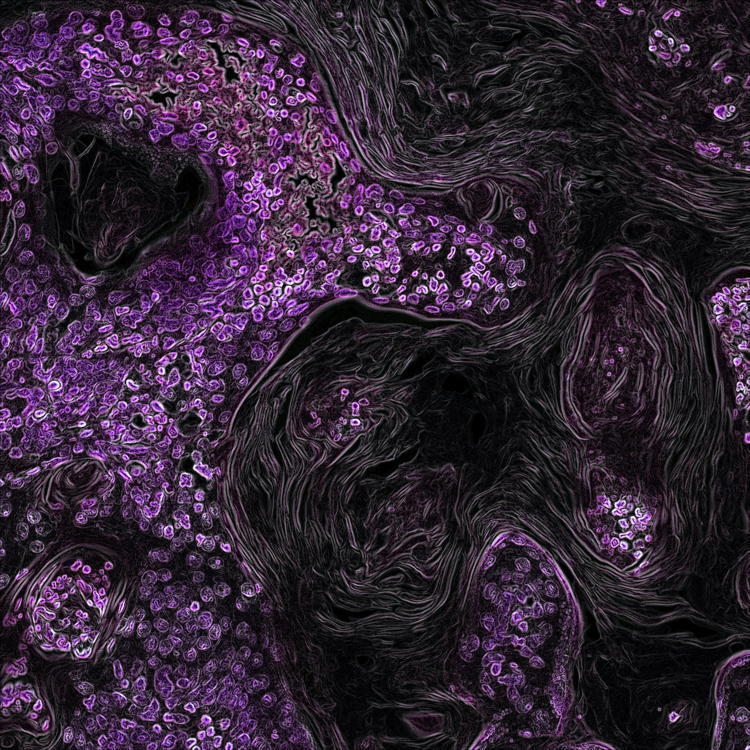MAGE-A3/4 and NY-ESO-1 antigens expression in metastatic esophageal squamous cell carcinoma

Submitted: 14 January 2011
Accepted: 15 February 2011
Published: 21 March 2011
Accepted: 15 February 2011
Abstract Views: 1111
PDF: 648
HTML: 916
HTML: 916
Publisher's note
All claims expressed in this article are solely those of the authors and do not necessarily represent those of their affiliated organizations, or those of the publisher, the editors and the reviewers. Any product that may be evaluated in this article or claim that may be made by its manufacturer is not guaranteed or endorsed by the publisher.
All claims expressed in this article are solely those of the authors and do not necessarily represent those of their affiliated organizations, or those of the publisher, the editors and the reviewers. Any product that may be evaluated in this article or claim that may be made by its manufacturer is not guaranteed or endorsed by the publisher.
Similar Articles
- S Trifunovic, B Filipovic, V Ajdžanovic, B Šošic-Jurijevic, M Manojlovic-Stojanoski, N Nestorovic, N Ristic, M Sekulic, V Miloševic, The effects of chronic SRIH-14 and octreotide administration on the pituitary-adrenal axis in adult male rats , European Journal of Histochemistry: Vol. 52 No. 1 (2008)
- A Balestrazzi, G Bernacchia, L Pitto, G Luccarini, D Carbonera, Spatial expression of DNA topoisomerase I genes during cell proliferation in Daucus carota , European Journal of Histochemistry: Vol. 45 No. 1 (2001)
- CarloAlberto Redi, Transcription factors - Methods and protocols , European Journal of Histochemistry: Vol. 55 No. 1 (2011)
- E. Negrato, M. Vascellari, F. Capolongo, G. Binato, L. Da Dalt, M. Boscolo Papo, G. Gioacchini, O. Carnevali, D. Bertotto, G. Radaelli, F. Pascoli, Expression of 8-OHdG in Zosterisessor ophiocephalus from the Venetian lagoon, Italy , European Journal of Histochemistry: Vol. 57 No. 1 (2013)
- NM Maraldi, G Lattanzi, P Sabatelli, A Ognibene, M Columbaro, C Capanni, C Rutigliano, E Mattioli, S Squarzoni, Immunocytochemistry of nuclear domains and Emery-Dreifuss muscular dystrophy pathophysiology , European Journal of Histochemistry: Vol. 47 No. 1 (2003)
- Antonio Franchitto, Diletta Overi, Romina Mancinelli, Anna Paola Mitterhofer, Paolo Muiesan, Francesca Tinti, Ilaria Umbro, Stefan G. Hubscher, Paolo Onori, Eugenio Gaudio, Guido Carpino, Peribiliary gland damage due to liver transplantation involves peribiliary vascular plexus and vascular endothelial growth factor , European Journal of Histochemistry: Vol. 63 No. 2 (2019)
- C Angelini, B Baccetti, P Piomboni, S Trombino, MG Aluigi, S Stringara, L Gallus, C Falugi, Acetylcholine synthesis and possible functions during sea urchin development , European Journal of Histochemistry: Vol. 48 No. 3 (2004)
- Fiona Limanaqi, Francesca Biagioni, Alessandra Salvetti, Stefano Puglisi-Allegra, Paola Lenzi, Francesco Fornai, Morphology, clearing efficacy, and mTOR dependency of the organelle autophagoproteasome , European Journal of Histochemistry: Vol. 65 No. s1 (2021): Special Collection on Advances in Neuromorphology in Health and Disease
- M Kotula-Balak, M Gancarczyk, J Sadowska, B Bilinska, The expression of aromatase, estrogen receptor a and estrogen receptor b in mouse Leydig cells in vitro that derived from cryptorchid males , European Journal of Histochemistry: Vol. 49 No. 1 (2005)
- N Marziliano, E Arbustini, M Rossi de Gasperis, S Crovella, Detection of Epstein Barr virus in formalin-fixed paraffin tissues by fluorescent direct in situ PCR , European Journal of Histochemistry: Vol. 49 No. 3 (2005)
<< < 71 72 73 74 75 76 77 78 79 80 > >>
You may also start an advanced similarity search for this article.

 https://doi.org/10.4081/ejh.2011.e7
https://doi.org/10.4081/ejh.2011.e7










